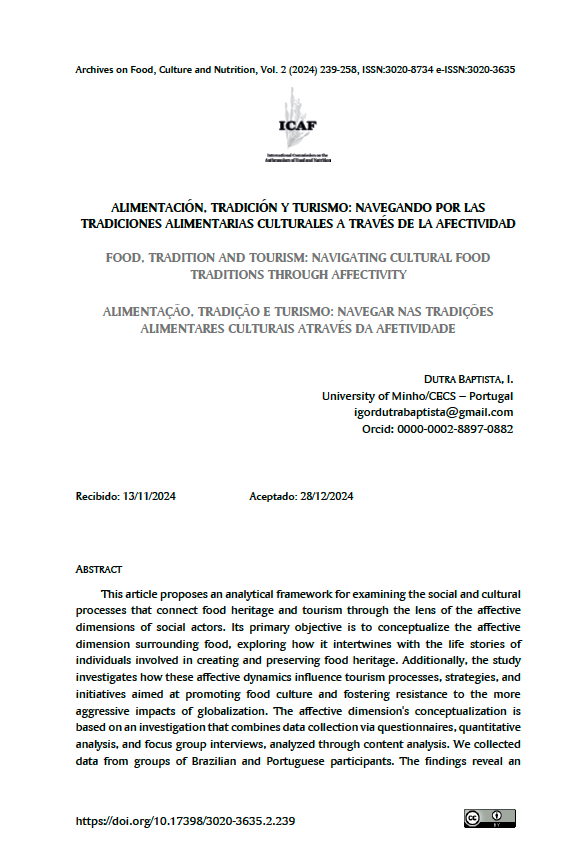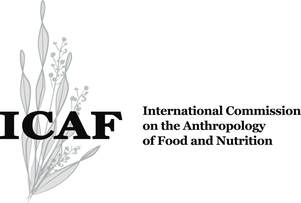Food, Tradition, and Tourism
Navigating cultural food Traditions through affectivity
DOI:
https://doi.org/10.17398/Keywords:
Food heritage, Tourism, Affective food, Traditional food, Local food cultureAbstract
This article proposes an analytical framework for examining the social and cultural processes that connect food heritage and tourism through the lens of the affective dimensions of social actors. Its primary objective is to conceptualize the affective dimension surrounding food, exploring how it intertwines with the life stories of individuals involved in creating and preserving food heritage. Additionally, the study investigates how these affective dynamics influence tourism processes, strategies, and initiatives aimed at promoting food culture and fostering resistance to the more aggressive impacts of globalization. The affective dimension's conceptualization is based on an investigation that combines data collection via questionnaires, quantitative analysis, and focus group interviews, analyzed through content analysis. We collected data from groups of Brazilian and Portuguese participants.
The findings reveal an affective dimension closely tied to the life trajectories of the actors involved. This dimension encompasses choices, memories, emotions, affections, traditions, knowledge, and the continuity of cultural and traditional food practices. Governed by these elements, the affective dimension becomes a defining feature of food heritage processes. When crystallized in food practices, it forms an inseparable component of heritage and tourism relationships, underscoring its central role in structuring these processes.
Downloads

Downloads
Published
Issue
Section
License
Journal editors must be attentive to intellectual property issues and work together with their editor to manage potential infringements of intellectual property laws and conventions. It is important to note that the intellectual property laws of the local jurisdiction are sovereign.
All content published in Archives in Food, Culture and Nutrition (AFOCUN) is under a Creative Commons Attribution 4.0 International License (CC BY 4.0) for open access. This license allows others to distribute, remix, adapt, and build upon the work, even for commercial purposes, as long as appropriate credit is given to the original author. Authors retain copyright and grant the journal the right of first publication, registering the work under the corresponding attribution license. This allows third parties to use the published content as long as the authorship of the work and the original publication in this journal are acknowledged.
For more information about the license terms, see the official link: Creative Commons Attribution 4.0 International License.
Archives in Food, Culture and Nutrition respects the intellectual and proprietary rights (copyright) of published works and allows authors to freely use their own published works, always within the limits of applicable law









